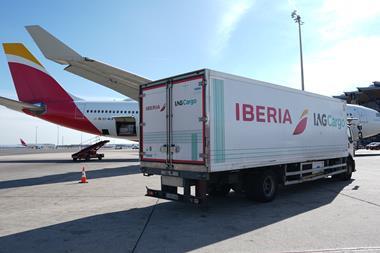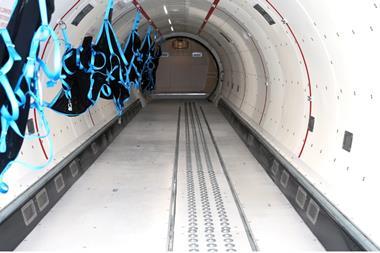The need for convergence on UK and European Union (EU) rules on aircraft wet-leasing is one aspect of a new Brexit study by UK business lobby, the CBI.
In the report, published today, the CBI has outlines where Britain’s top company bosses want to stay close to European Union rules and where they want divergence.
Aviation is one of 23 industry sectors analysed in the CBI report, Smooth Operations, which provides an A to Z of the rules that will matter after the transition period when the UK finally exits the EU, or ‘Brexit’.
“The task of unpicking 40 years of economic and regulatory integration is complex and colossal,” CBI director general Carolyn Fairbairn warned at the launch of the report.
On wet-leasing, where EU regulations permit aircraft and their crew to be transferred between carriers, the report states: “Within the air cargo sector in particular, wet leasing is a common practice: there are numerous cargo airlines, including some based in the UK, that specialise in supplying aircraft, crew, maintenance and insurance services.
“Convergence on EU rules for wet leasing will be important to ensure open and liberal access.”
The report says that the process of wet leasing for third country airlines is “much more complicated than the EU process”.
The CBI also identifies UK membership of the European Aviation Safety Agency (EASA) as “imperative,” adding that the UK “should continue to play a key participatory and leadership role in the agency”.
It added: “EU rules on the aviation sector are not just designed through the process of legislation in the European Commission and Parliament, and enforced by the European Court of Justice. Instead, a decentralised agency – EASA - plays a crucial role in the design, monitoring and enforcement of standards for the aviation sector.”
If the UK Civil Aviation Authority is no longer a part of EASA, outside the EU aviation market and no longer benefiting from the services EASA provides, it would have to “set up new systems, hire more people and create UK standards and practices for processes that already exist”.
These UK standards would then have to be recognised in new bilateral aviation safety agreements with third countries, like the US.
Warns the report: “Should other countries not be satisfied with the UK’s initial arrangements, they may require inspections of the UK’s airports and airlines, which would incur additional costs. Convergence and continued involvement in EASA is therefore crucial.”
Goods worth £160bn were shipped by air between the UK and non-EU countries in 2015 - over 40% of the UK’s extra-EU trade by value.
On flying rights, the report highlights that UK airlines currently have automatic access to the EU Single Aviation Market, allowing aircraft to fly across and between European countries, resulting in member state airlines operating 26,000 flights across the continent each day.
“Aviation market access between the EU and the UK must be secured to ensure connectivity continues, and convergence between rules in this sector will be necessary to achieve this,” states the CBI.
It recommended that the UK government work with the EU to “protect and secure the current level of market access in any agreement – including the right to fly intra-European routes and domestically within EU Member States”.
These abilities – to fly from Hamburg to Frankfurt as well as from Frankfurt to Florence, instead of just Glasgow to Frankfurt – says the CBI, are not commonly included in traditional aviation agreements and will only be possible if the UK converges with EU aviation rules.
“If convergence is not maintained, this will have an impact both on the industry and the consumer. While airlines can undertake some mitigating actions to ensure they comply with EU market access restrictions, such as taking out an Air Operator Certificate, this will ultimately increase business complexity and cost.”
It added: “The individual air service agreements which operated between the UK and each of the Member States before the creation of the Single Aviation Market are not a sufficient fall-back.
“A question mark remains over their legal validity, as they were all superseded by membership of the internal market. But whatever their legal status, these agreements are restrictive, antiquated and not fit for purpose.”
Read moreBrexitnews










